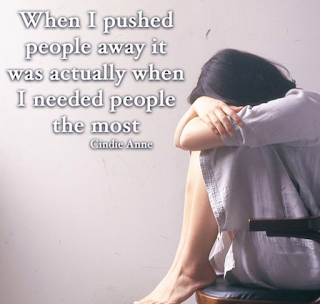By Vicki Berkus M.D., Ph.D., CEDS, Remuda Ranch Medical Advisor
When they first begin treatment, patients often struggle and insist
on “doing treatment their way.” I tell my patients’ families that they
can typically expect a phone call after two or three days, during which
they are likely to hear, “Get me out of here! They don’t understand me!”
To gain some insight into what a patient’s experience was like I went
undercover and entered a treatment program as a patient struggling with
laxative abuse. I packed my suitcase, hid laxatives in my hair and in
the handle of my suitcase and walked through the front door.
My process as a patient started with the intake interview where I had
to tell a complete stranger some of the most private things about me.
Once I was admitted, I was given an exam gown and my luggage was
removed to be searched. I had to change into the exam gown in the shower
so that the nurse could see whether I was hiding anything. Then, I was
again questioned and went through a physical exam. I had blood drawn, an
EKG, and weight taken without hearing or seeing the results. I then was
allowed to eat and read the orientation packet.
I was exhausted after three hours of being somewhere I didn’t want to
be, talking to people I didn’t trust and having no support (or
perceiving that I had no support.) Throughout my stay, I was told when
to eat and when to sleep, and had most of my personal items taken from
me and locked away.
Finding Empathy for Struggling Patients
I knew as a doctor and
eating disorder treatment professional that
the purpose of all of this wasn’t to make me feel like an infant, but to
make sure I was medically stable and safe in that environment.
Many of our patients don’t quite understand that. They are angry,
tired, lonely, and scared. It takes courage to go through treatment.
My insight increased over the next few weeks as I ate with peers,
attended Family Week, and sat in process groups observing the patients’
progress. Overall, it wasn’t an entirely pleasant experience for me; I
can’t imagine having an eating disorder in my head and trying to go
through this process. I’m glad I had a chance to experience it
first-hand so that I would not longer have to base my assumptions on my
limited perception.
Today, I tell my patients that I don’t expect them to like treatment
or even want treatment; but, if they know deep down that their way isn’t
working to just do it anyway. I think the key when trying to help
eating disorder patients is to set boundaries and be firm while
including incentives in their treatment that they can earn.
Starvation, biochemical changes in the brain and body while
re-feeding, and co-occurring mood disorders all exacerbate the disease
and the lack of control over emotions and behaviors. I think back to my
residency days when I was on call every other night (at age 43) and
remember that without proper sleep and nutrition, I was not fun to be
around.
Think about the last time you were trying to function without the
right amount of sleep or food, and try to remember how you felt when
dealing with your patient or loved one as they enter into eating
disorder treatment.
Remuda Ranch Can Help
The experienced staff at
Remuda Ranch at The Meadows
understands the pain that eating disorders can bring. There is hope. We
can help you or your loved one get on the road recovery.
Our beautiful campus in the heart of the Sonoran Desert offers patients
large rooms, indoor and outdoor horse arenas, a swimming pool, and a
challenge course. Among the lush landscapes, patients are surrounding by
peace and tranquility while they work with our team to overcome their
eating disorders and dual diagnoses, and find peace within. Call us
today 866-390-5100 or
reach out online.
Source Link
















